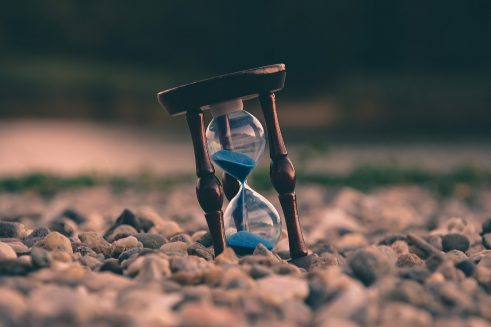I am friends with at least three people on Facebook who are dead. I follow a few people on instagram who, similarly, will never post another picture or story. Their pages are frozen in time, with their final post comments section- be it as innocuous as a picture of their dinner, or as final as their view from a hospital bed- full of messages from friends and followers, interacting almost as if the person can read them.
We’ve all been online for a few decades now, and it’s currently estimated that there are more than 30 million dead people on Facebook. It’s a strange and very contemporary feeling to know that after you die, your digital footprint will remain: holiday photos, your Linkedin profile… all of these things will form your digital legacy. Your close ones will remember you of course, but so will the internet.
In 2019, Twitter began deleting inactive accounts, which proved controversial. Do we want to just be deleted from existence? From a digital carbon footprint stance, is there even enough cloud space for us all to be ‘digitally immortal’? This raises important questions about what happens to our digital footprint after we die and who gets to decide.
A recent survey by Good Trust, part of the ‘Death Tech’ industry, revealed that ‘90 percent of people in the U.S have no plans whatsoever as to what happens to their digital stuff’ after they die. GoodTrust, founded at the start of the pandemic by a team of tech-for-good veterans, ‘empowers you to easily and securely organize your digital life and assets.’ It sounds like science fiction, but this is now a reality.
The popular anonymous confession account on Twitter, FessHole is often full of people ‘confessing’ to the little ways they use digital media to stay connected to those they’ve lost: continuing to Whatsapp message a lost partner when they have good news, or revisiting a Google Street View capture of their parents walking down a street, and imagining they can still walk along with them…
My close friend Phoebe passed away four years ago now, and yet on Facebook I still get a reminder when her birthday is coming up and a friendship anniversary notification. Whenever I create a Facebook event, she appears as someone I can invite along. I can’t bring myself to unfollow or unfriend her.
In the immediate years after her death, these ‘helpful updates’ were insensitive and upsetting. Having recently found out that it was possible to set up a ‘legacy contact’ on Facebook: someone you can assign to memorialise your page, post funeral details for friends, whilst also providing a way to let Facebook know you’ve passed on. I was confused as to why someone as well-organised as Phoebe didn’t set this up on her page. We’ll never know of course: I like to think she wanted to ‘live on’ in this way: to leave a digital legacy, in the same way she left a legacy in her Will to a local dog rescue charity. Those helpful updates I receive now act almost like a prompt to recall happy memories of my friend, now that a few years have passed and the grief is more manageable.
It’s a difficult subject to talk about, but something we will all face in our lives. We will all lose people we care about, and we will all die someday. We may not know when our time is up, but we can choose the legacy we leave behind. Online and offline.






